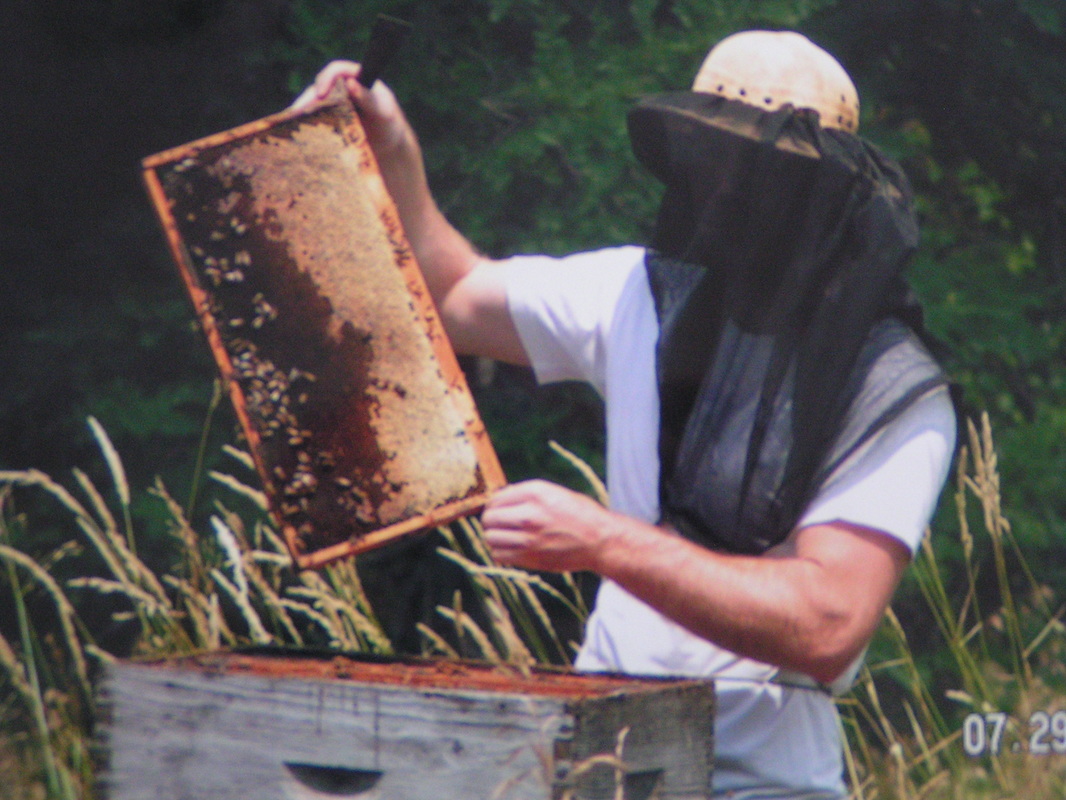Which means a disease that's wiping out honeybees is bad. Really bad.
If someone discovers something that will stop that disease, that someone is saving all human life as we know it.
Meet professor Penny Amy and graduate student Diane Yost...
"AFB has been known about for 100 years. It is called 'American' because this is where it was first discovered, but the disease is worldwide. It is the worst of the bacterial diseases that affect honeybees.
It is a bacteria that simply exists in nature. Sometimes, honeybees encounter it while out running their errands. When they return to the hive, they sometimes accidentally bring it with them.
That is how it works its way into honeybee colonies. It does not harm adult bees, but when the larvae - the babies - get infected, the bacteria settles into their gut and eats them from the inside out.
It is gross and it is deadly...
"When professor Amy started thinking about AFB, she thought about how some scientists have figured out ways to kill some bacteria with viruses.
This has been going on for decades, but it's really taken off in recent years as researchers look for ways to kill so-called 'superbugs,' or bacteria that have become resistant to antibiotics...
"They tested soil from Pennsylvania and Iowa; beeswax, that gluey stuff bees make to hold their hives together; even a tube of Burt's Bees lip balm that Yost found while walking her dog in a park. In all, they tested 98 different things.
Turns out, they found naturally occurring strains of a virus in 31 of the samples (including, yes, the lip balm). None of those virus strains hurt humans - or, more importantly, adult honeybees.
They ran some tests. They figured out that some of those strains actually did kill the AFB bacteria...
"They're in the process right now of running DNA testing to figure out which strains are which.
Once they figure that out, they'll want to weaponize the stuff. They wouldn't use that term, of course, but that is the goal. They want to figure out whether they can make it into a spray or something that would essentially treat infected beehives or, even better, protect beehives from ever getting infected."
UNLV researchers fight disease affecting honeybees
By Richard Lake
LAS VEGAS REVIEW-JOURNAL

 RSS Feed
RSS Feed
